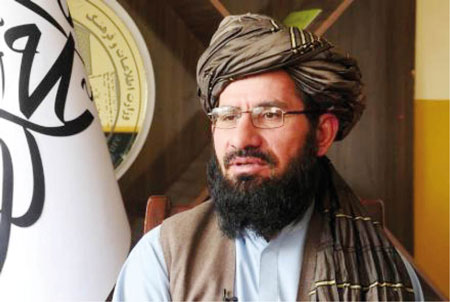Residents in the nation’s capital city Kabul criticized the electricity shortage and said that power shortages create many challenges.
They called on the Islamic Emirate to strive to provide sustainable electricity to the people.
“Each day electricity is not supplied for even 20 minutes at a time, we can’t even charge our phones,” said Kazim Ali, a Kabul resident.
“Everyone has children, the weather is cold, and the lack of electricity is a big challenge for people,” said Ahmad Shah, a Kabul resident.
Meanwhile, the head of Da Afghanistan Breshna Sherkat said that the Islamic Emirate has paid more than half of the debts of the previous government to the Uzbekistan government, and, according to the recent agreement, the Uzbekistan government must export electricity to Afghanistan.
“The previous government’s problems with Uzbekistan mean debts–we solve the problem and paid the debt,” said Hekmatullah Akhon Zada, head of Da Breshna Sherkat.
Political analysts shared different views about the power outages in Uzbekistan.
“These days Uzbekistan cannot supply power to its citizens, and, meanwhile, the use of the water of the Amu Darya for Qosh Tepa Canal makes Uzbekistan’s government worry. In this regard, there should be negotiations with Uzbekistan again,” said Tariq Farhadi, a political analyst.
“Power outages from Uzbekistan are not technical problems, because the problems of the lines are solved; maybe it a political issue, and Breshna Sherkat must solve it diplomatically,” said Amanullah Ghalib, former head of the Breshna.
“It’s so soon to talk about this issue, whether it’s a political problem or not, the contract that was renewed and signed must be implemented,” said Akhon Zada.
According to available statistics, Afghanistan needs nearly 2000MW of power and only 400MW of it is provided by the country’s resources.
Nearly 800 MW of power is imported from Tajikistan, Uzbekistan Turkmenistan, and Iran.—ATolo news










